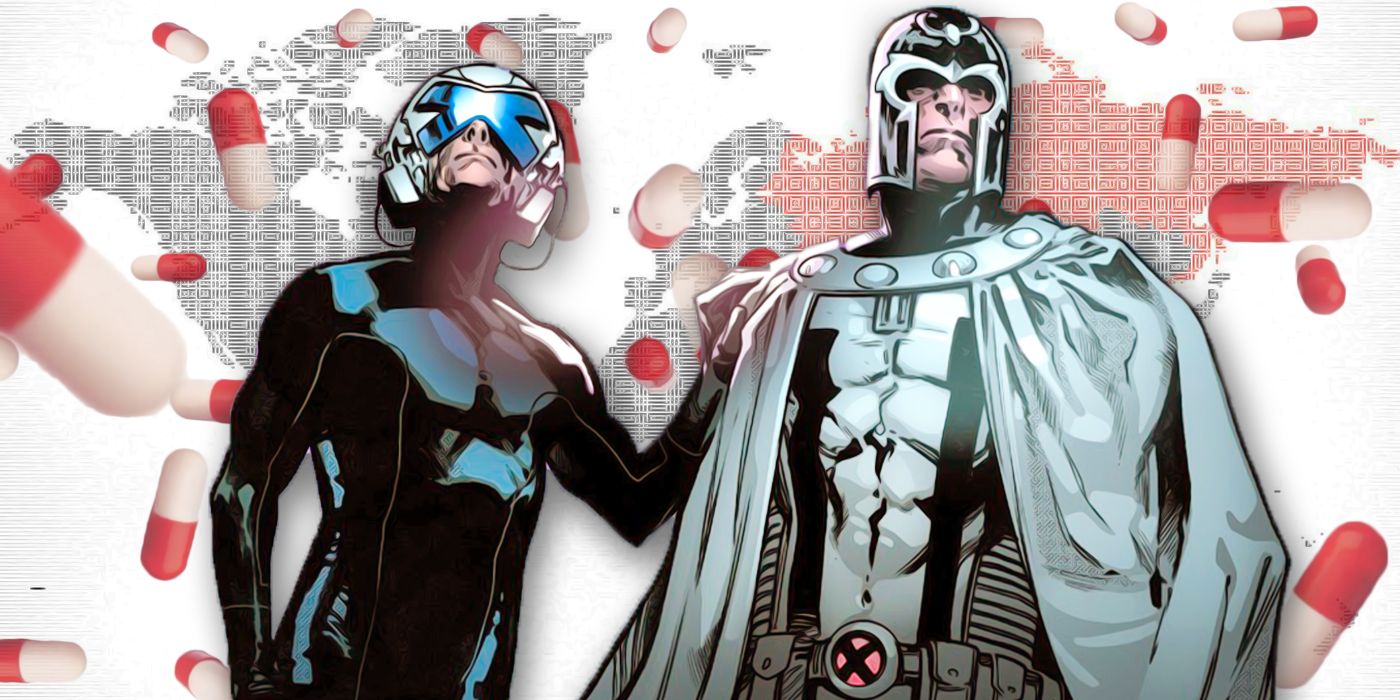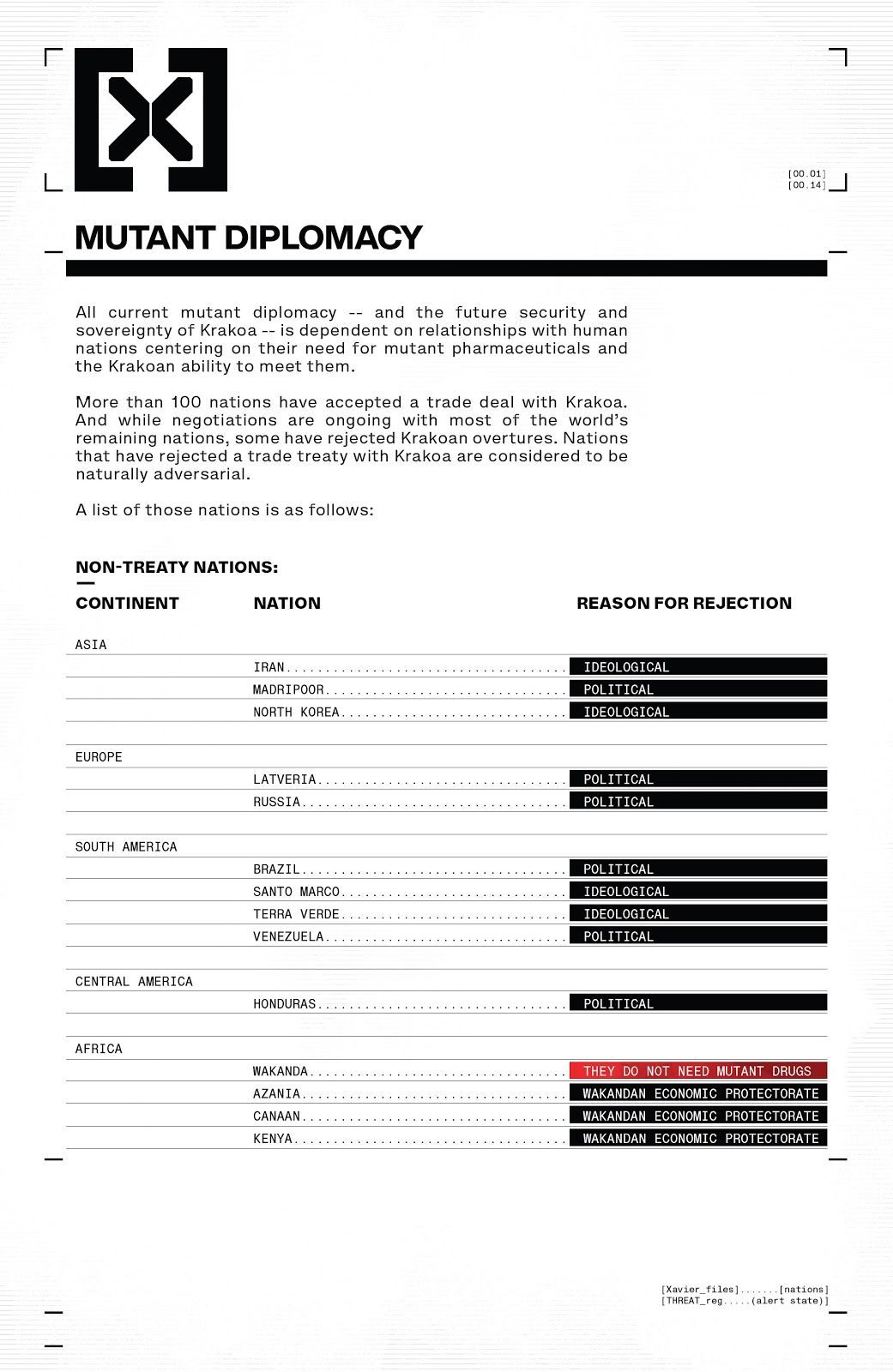Warning: The following contains major spoilers for House of X #5, by Jonathan Hickman, Pepe Larraz, Marte Gracia, VC's Clayton Cowles and Tom Muller, on sale now.
The plot of House of X concerns itself mainly with the cause of mutant unification as Charles Xavier moves all of the pieces in place to create a wholly independent and utopic mutant nation. While their cause seems to mainly be the preservation and expansion of their species, not every country in the world is a big fan of the mutants' political aspirations.
Some of the resistance to the proliferation of mutant rights is to be expected, given the decades-long bigotry and discrimination against their kind present throughout the world. Hate groups and government termination campaigns are part of the reason that mutantkind feels so threatened, after all, and that hatred is not confined to any one nation or people. But there is more at play in the resistance to mutant statehood that the other countries offer, and the infographic writer Jonathan Hickman provides in House of X #5 briefly identifies each countries' motivation.
There is a curious division between some countries whose resistance to the mutants is designated as "political" and others that are designated as "ideological." With some countries, it is clear how their resistance is grounded. Latervia and North Korea are similarly ruled by dogmatically independent autocrats averse to accepting help from other nations, while countries like Russia have pre-established agendas against mutants like Magneto, who the country formerly assigned the Soviet Super Soldiers to hunt down.
But many other countries' motivation, such as those in South America, like Santo Marco and Venezuela, remain a mystery even as the former is identified as "ideological" and the latter "political." Some of the concern may just arise from not trusting the medically revolutionary medicine that the mutants offer to the world; indeed, much of Africa rejects the offer for help because the countries there are protectorates of Wakanda, which already adequately provides for them.
Given the ethically-compromised lengths Xavier seems to be willing to go to in order to further his cause, the nations of the world may have good reason for keeping their trust at arm's length. At the same U.N. summit that legitimized the statehood of the newly-established mutant nation Krakoa, Xavier secretly thanked Emma Frost for flexing her telepathic influence toward moving the vote in her favor. Mutants seem wholly willing to resort to any means necessary in order to accomplish their goals, even if that includes compromising the will of individuals.
It also seems to include an alliance with many of the X-Men's greatest former foes. The end of the issue saw Xavier inviting the likes of Apocalypse and Exodus, genocidal maniacs and terrorists in their own right, into the fold of mutant supremacy. Although few of the countries listed opposed to Krakoa international aide have superheroes of their own to fight for their cause (with Wakanda's king, Black Panther, being perhaps the most notable exception), such countries may prove the last line of defense if the X-Men were to push fully into the world of super villainy.


